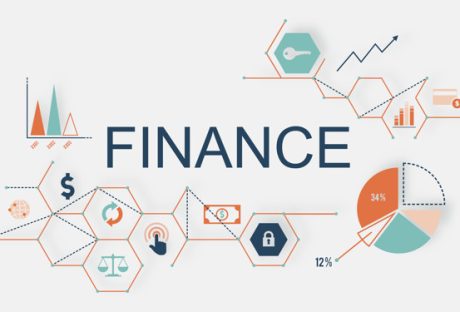Legal education in the United States for young people is a great start to success. Such a diploma opens the doors of large corporations to novice specialists in many countries.
How to obtain the J.D. degree?
To do this, you need to go to law school. At the time of application, you must have a bachelor’s degree from any other university. You will be awarded a Juris Doctor (J.D.) degree based on your 3-year law school in the United States. It will be possible to practice only after passing the qualification state test and joining the bar association.
For foreign applicants, the following admission rules apply. A young person needs to send a notarized diploma to a special institution for verification. It is not only the presence of a higher education that matters, but also the GPA. You will have to pay about $ 100 for this service.
Exams:
Applicants admitted to the entrance exams must pass the Law School Admission Test (LSAT). Its goal is to test the ability of a future lawyer to concentrate, think logically, process large volumes of information, and critically perceive it.
LSAT – Law School Admission Test is a standardized test for admission to all American Bar Association (ABA) approved law schools, most Canadian law schools, and some non-ABA approved schools. The test was developed by the Law School Admission Council, LSAC.
It represents a standardized measurement of writing and verbal reasoning skills. The test takes place four times a year in hundreds of centers around the world. Some law schools now accept GRE – Graduate Record Examination.
GRE, like SAT, comes in two flavors: general and subject. The structure of the GRE exam is similar to the SAT, but the level of requirements is higher – you actually confirm your bachelor’s degree.
It evaluates your reasoning abilities more than your knowledge of any specific area of knowledge. These tests are conducted for students with a bachelor’s degree in the field. They cover 8 different areas of knowledge.
These two exams are completely different and if you only passed the GRE, you may need to convert your GRE scores to LSAT scores.
How is legal education in the USA different from studying in other countries?
- The two main principles of training to become a lawyer in the United States are narrow specialization and practical orientation. In accordance with this, the educational process is being built.
- In addition to many hours of independent work in the library, the programs include attending lectures given by representatives of the largest law firms, acting judges, etc. Speakers share their experience with future specialists, talk about the nuances of their chosen area of activity, and their speeches are based on cases from real legal practice.
- Teachers demand from students not only to assimilate large volumes of information but to critically perceive it and be able to defend their position. The main task of each course is to demonstrate the practical significance of the material studied, while young people should analyze the feasibility of a particular legislative model.
- A limited amount of time is allocated to theoretical and philosophical subjects, and they are studied optional. Students are also briefly introduced to various legal areas of law, but in more depth, they study only those disciplines that they need for further specialization. In addition, there are no diplomas and term papers. In some institutions, it is possible to write and defend a work that gives 1 credit, but no more.
- While studying to be a lawyer in the United States, you need to score a certain number of points (credits). For one semester, there should be from 12 to 17. Each course corresponds to a certain number of credits. The student chooses disciplines in such a way that the total is the required number of points. This allows each student to form an individual schedule and study in more depth those subjects that he needs in the future.
Three legal degrees:
The first degree, as mentioned above, is his Juris Doctor (J.D.), which is awarded at the end of a 3-year period of study. American law school graduates are usually limited to this: they pass examinations, join the bar, and begin to practice law.
The second degree is Legum Magister, or Master of Law (LL.M). Usually, graduates of foreign law schools seek to obtain it.
The highest degree is Doctor of Juridical Science (S.J.D.). To obtain it, it is necessary to write and defend a research paper within 3-5 years.
Documentation:
The list of documents may vary depending on the specific educational institution. Most often it includes:
- application form;
- essay;
- test results (TOEFL, SAT, GRE, etc.);
- documents on education;
- letters of recommendation from teachers or employers.
Requirements for applicants:
They depend on which of the three degrees the candidate wishes to receive as a result: Juris Doctor, Legum Magister, or Doctor of Juridical Science. Requirements also vary depending on the program of study and the specific university, so the applicant must first decide where he plans to receive legal education in America. In addition, the average performance at the previous university, LSAT score, essay, and recommendations are usually taken into account. By the way, it is easier to apply for an LL.M than for a J.D., however, it is easier to get a job with the last degree.
How to choose the right Law School?
The general criteria that an applicant should pay attention to are as follows:
the prestige of the school. It affects how easy it will be to find a job in the future;
cost of education. Usually, in large cities prices are higher than in small ones;
location. Some are attracted by life in a metropolis, while others are repulsed;
the possibility of in-depth specialization in your chosen direction.
The cost:
Legal education in the United States is a very large investment in your future, especially if you are choosing a reputable university. The cost of training can reach 70 thousand dollars per year. Less well-known universities will be cheaper, but also run in the tens of thousands of dollars.
Read Also:
- 5 Things You Should Look For When Applying To A Higher Educational Institution
- 8 Surprising Ways Cloud Computing is Changing Education
- Academic Writing for UK Students – Why It’s Important?
























